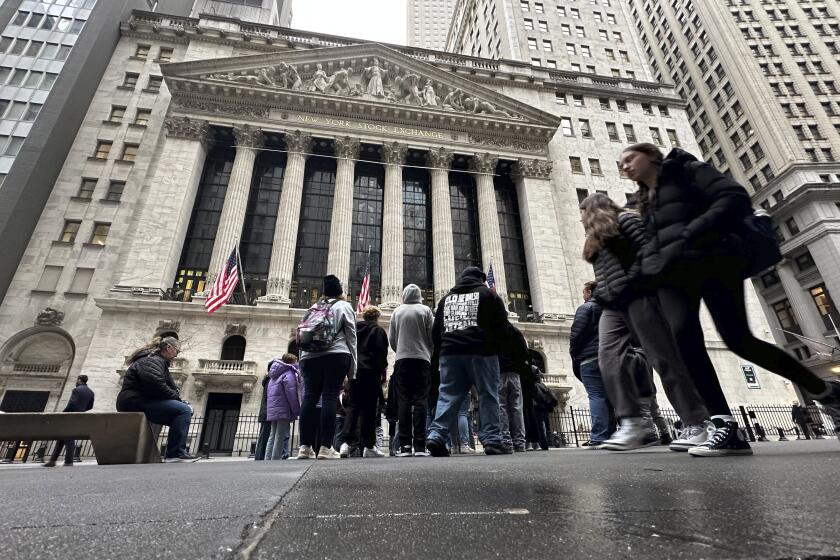Americans buy existing homes at fastest pace in a decade
Americans shrugged off rising mortgage rates and bought existing homes in January at the fastest pace since 2007. That has set off bidding wars that have pushed up prices as the supply of available homes has dwindled to record lows.
Home sales rose 3.3% in January from December to a seasonally adjusted annual rate of 5.69 million, the National Assn. of Realtors said Wednesday.
Steady job gains, modest pay raises and rising consumer confidence are spurring healthy home buying even though borrowing costs have risen since last fall. Some potential buyers may be accelerating their home purchases to get ahead of any further increases in mortgage rates. With few homes available for sale, buyers feel pressure to rapidly close a deal when they find a suitable property.
The typical house for sale was on the market for just 50 days last month, down from 64 days a year earlier. Strong demand is pushing up the median home price, which jumped 7.1% from a year earlier to $228,900.
Just 1.69 million homes were on the market nationwide in January, near the lowest level since records began in 1999. It would take 3.6 months to deplete that supply at the current pace of sales, matching a record low reached in December. In a balanced housing market, supply is usually equal to about six months’ worth of sales.
The supply crunch probably will get worse during the upcoming spring buying season, economists say, because demand typically rises by more than supply during that time.
“Relative to the number of households, the number of homes for sale is well through prior historic lows,” said Ted Wieseman, an economist at Morgan Stanley. “The level of inventories could be a much bigger challenge moving into much higher sales in the spring and summer.”
That, combined with higher mortgage rates, soon could restrain sales.
“We are a bit less gloomy about housing than a couple of months ago, but sales will not continue to rise at their recent pace,” said Ian Shepherdson, chief economist at Pantheon Macroeconomics.
The bulk of the stronger buying is occurring among higher-priced properties, the Realtors group said. Sales among homes and condominiums priced at $100,000 and below fell nearly 10% in January compared with a year earlier. They rose slightly in the $100,000 to $250,000 bracket and jumped roughly 20% in homes priced at higher levels.
Last year, low mortgage rates helped offset rising home prices. Now, both are rising.
Mortgage rates have climbed since November’s presidential election. Investors are anticipating that tax cuts, deregulation and infrastructure spending will accelerate growth and push up inflation. That has caused investors to cut back on their bond holdings, pushing up yields.
The average rate for a 30-year fixed mortgage was 4.15% last week, according to mortgage buyer Freddie Mac. Although that has slipped since earlier this month, it is much higher than last year’s average rate of 3.65%.
By some measures, the housing market has fully recovered from the bust that began in 2006. Yet its newfound health is creating another set of challenges.
In high-demand areas, mostly on the West Coast, homes are being bought after less than a month on the market, according to real estate brokerage Redfin.
Denver was the fastest market last month, Redfin found, with purchase contracts signed just 23 days after listing for a typical home — far faster than the 43 days that was typical a year earlier. Seattle was the second-fastest, with 26 days on the market, followed by Oakland, at 27 days.
The strength in sales should lift growth, as new homeowners buy furniture and appliances and spend more on landscaping and outdoor equipment. Home sales also tend to spur renovations, which helps to update aging properties and generates additional construction work for the broader economy.
ALSO
More skiers turn to short-term rentals — a mixed blessing for resorts
Over the last decade, L.A. County has traded high-paying jobs for low-paying ones
Uber sexual harassment allegations are a warning for the tech industry and its ‘rock star’ culture






